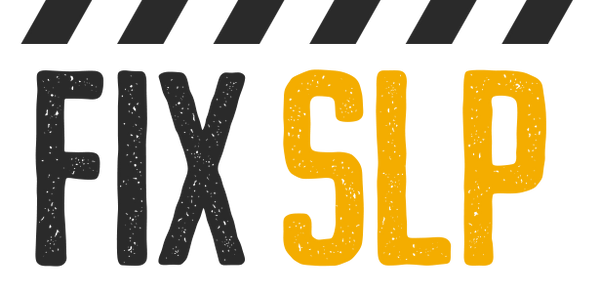Update (05/14/25): Click here to access all of the resources to take action on Michigan House Bill 4484 2025
Understanding Michigan Medicaid Changes for Speech-Language Pathologists (SLPs)
The Michigan Department of Health and Human Services (MDHHS) implemented changes to Medicaid enrollment requirements and billing processes for Speech-Language Pathologists (SLPs) effective November 1, 2024. The updates, announced on October 1, 2024, in bulletin number MMP 24-42, clarify qualifications for Medicaid reimbursement and emphasize inclusivity by expanding eligible provider categories while simplifying documentation requirements. Here's a comprehensive breakdown of these changes, tailored for SLPs, their employers, and those responsible for billing Medicaid services.
Key Updates in Michigan Medicaid Policies for SLPs
1. Eligibility for Medicaid Enrollment and Reimbursement
Michigan Medicaid now recognizes a broader range of SLP providers who can render services and be reimbursed.
-
State Licensed Speech-Language Pathologists:
- Fully licensed SLPs in Michigan can enroll and bill Medicaid directly for their services.
- Out-of-state SLPs practicing in Michigan must hold a valid license or certification from their home state.
-
Educational Limited Temporary Licensees:
- Recent graduates completing the state's Supervised Postgraduate Clinical Experience or those waiting for full licensure can provide services under the supervision of a licensed SLP.
-
Speech-Language Pathology Students:
- Students in clinical placements may deliver services, but only under direct supervision (the supervising SLP must be physically present). Supervising SLPs are responsible for reviewing and co-signing documentation.
2. Certificate of Clinical Competence (CCC) Not Required
Notably, the Certificate of Clinical Competence (CCC) from the American Speech-Language-Hearing Association (ASHA) is not mentioned or required in Michigan's Medicaid Provider Manual posted on January 1, 2025, or related bulletin.
The elimination of the CCC is a significant departure from the previous enrollment and reimbursement requirement and aligns Michigan with federal Medicaid and Medicare regulations. The omission underscores the state's emphasis on licensure and competency, rather than additional certifications, as the standard for Medicaid eligibility.
3. Billing Requirements and Guidelines
Proper billing ensures compliance with Medicaid policies and timely reimbursement.
Key points include:
-
Direct Billing for Licensed SLPs:
- Fully licensed SLPs must enroll with Medicaid to obtain a National Provider Identifier (NPI) and bill services under their own NPI.
- MDHHS does not require an ASHA number or proof of the CCC during enrollment.
-
Billing Under a Supervisor for Limited or Student Providers:
- Educational Limited Temporary Licensees and students cannot enroll as Medicaid providers or bill directly.
- Their services should be billed using the NPI of the supervising licensed SLP, ensuring accountability and compliance with Medicaid standards.
-
Documentation Standards:
- All services must be appropriately documented, including the date of service, the type of service provided, and the name and credentials of the provider.
- Supervisors must review and co-sign documentation for any services provided by students or temporary licensees.
4. Additional Considerations
SLPs and their employers should note the following:
-
Additional Credentialing Requirements:
- Medicaid Health Plans (MHPs), Integrated Care Organizations (ICOs), and Prepaid Inpatient Health Plans (PIHPs) may impose additional credentialing requirements. Providers should verify these with the respective entities to avoid reimbursement issues.
-
Cross-State Practice:
- SLPs practicing in Michigan but licensed out of state must meet Michigan's licensure or certification equivalency standards. Compliance is essential to prevent enrollment or billing disruptions.
Why These Changes Matter
These updates mark a pivotal moment for SLPs in Michigan. By eliminating restrictive requirements like the CCC, the MDHHS has made Medicaid enrollment and billing more accessible. This shift ensures qualified providers can deliver necessary services to Medicaid beneficiaries without unnecessary barriers.
For employers, these changes mean expanded hiring flexibility. Employers can now recruit Educational Limited Temporary Licensees and students, provided they meet supervision and documentation requirements.
Understanding these updates is essential for billing specialists to streamline claims processing and avoid denials.
Next Steps for SLPs and Employers
To ensure compliance:
-
Review the Medicaid Provider Manual: Familiarize yourself with the Therapy Services chapter for detailed policies.
- Relevant section outlining qualifications for covered services:
- 3.6 Speech Language Services - page 13
- Relevant section outlining qualifications for covered services:
- Verify Licensure: Confirm that all SLPs and temporary providers meet state licensure requirements.
- Update Billing Practices: Train billing staff on the proper use of supervising SLP NPIs for claims involving students or temporary licensees. Ensure they are questioning requests for the clinician's CCC card or ASHA number.
- Communicate with MHPs, ICOs, or PIHPs: Clarify additional credentialing requirements with these organizations.
For questions or clarification, contact MDHHS Provider Support at ProviderSupport@michigan.gov or call 800-292-2550.
